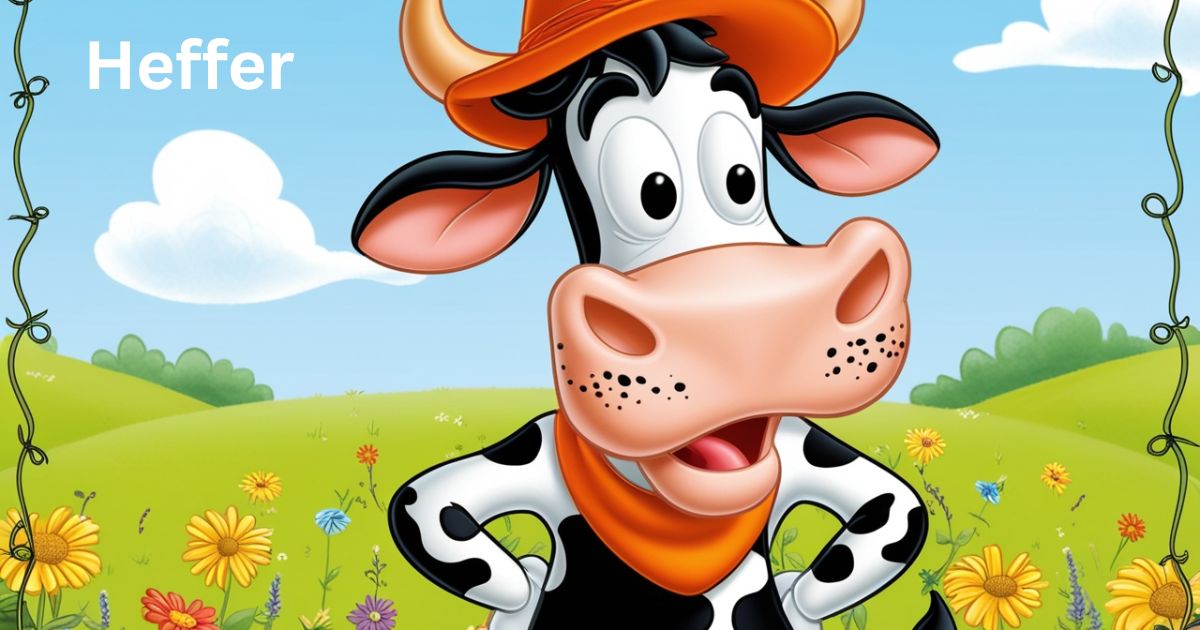Language and terminology evolve continuously, and certain words emerge in colloquial usage that may be unfamiliar to many speakers. Understanding these terms requires examining their definitions, historical development, and contemporary applications in various social contexts.
The term “heffer” represents one such linguistic phenomenon that warrants careful examination. This word functions as a derogatory descriptor typically applied to women, particularly those perceived as overweight, and carries significant cultural and social implications in its usage patterns.
This comprehensive analysis explores the multifaceted aspects of this terminology, including its semantic properties, practical applications, and historical development.
Heffer
The following sections provide detailed examination of this particular linguistic element and its various contextual applications.
The Meaning Of Heffer
The term “heffer,” frequently rendered as “heffa” in certain contexts, constitutes a pejorative expression used to reference women who are perceived as significantly overweight or obese. The word typically applies to individuals whose physical appearance aligns with societal perceptions of excessive weight, often corresponding to elevated body mass index measurements.
Beyond its primary application, the term may also reference younger women whose lifestyle choices and behavioral patterns suggest a trajectory toward weight gain. This includes dietary habits, exercise patterns, and general wellness approaches that may contribute to future weight increase.
The expression serves primarily as a body-shaming mechanism within social discourse, employed predominantly by male speakers as a means of expressing disapproval or disgust toward female subjects. However, usage patterns also demonstrate deployment by female speakers when referencing other women in derogatory contexts.
Contemporary usage frequently appears across digital platforms and social media environments, where the term functions as a tool for online harassment and negative commentary. Internet users often employ this terminology as part of broader patterns of cyberbullying and body-shaming behavior.
Examples of Heffer
The following scenarios demonstrate typical usage patterns and contextual applications of this terminology in conversational settings:
Professional establishment contexts might include references such as questioning the appearance of patrons or customers in hospitality environments, often accompanied by negative aesthetic judgments.
Domestic relationship scenarios frequently involve the term appearing during arguments or conflicts, typically resulting in significant interpersonal consequences and relationship strain.
Social commentary situations demonstrate usage when individuals make comparative judgments about others’ physical appearances, often incorporating additional derogatory references to specific body parts or physical characteristics.
Reconciliation contexts may feature the term when individuals attempt to apologize for previous usage, often accompanied by terms of endearment or affectionate language.
Comparative situations arise when individuals contrast expected appearances with observed reality, expressing disappointment or surprise through derogatory terminology.
Other Ways To Say Heffer
Alternative expressions that convey similar derogatory meanings include various terms that reference weight, physical appearance, and body size. These alternatives typically employ animal metaphors, size-based descriptors, or behavioral comparisons.
Weight-focused alternatives often utilize direct references to obesity or excessive size, employing terms that emphasize physical bulk or mass.
Animal-based comparisons frequently appear in similar contexts, drawing parallels between human subjects and large mammals, particularly those associated with farm environments or marine life.
Behavioral descriptors may reference eating habits, lifestyle choices, or general conduct patterns perceived as undesirable or excessive.
Origins Of Heffer
Historical linguistic analysis suggests the term’s emergence during the early nineteenth century, with most etymological experts tracing its development to approximately the 1830s period. The word’s evolution appears closely connected to the agricultural term “heifer,” which specifically denotes a young female cow that has not yet reproduced.
This etymological connection provides logical foundation for the term’s application, as the comparison between overweight women and bovine animals creates a clear semantic relationship that explains the word’s derogatory nature.
Historical usage patterns indicate consistent application throughout the mid-nineteenth century, with documented instances of the term appearing in various social contexts as early as 1835.
Contemporary developments have introduced spelling variations and digital adaptations that reflect modern communication patterns. The emergence of “heffa” as an alternative spelling gained prominence during the early 2000s, potentially influenced by technological factors such as autocorrect systems and digital communication platforms.
The term achieved broader cultural recognition through its inclusion in online dictionaries and social media platforms, with formal documentation appearing on Urban Dictionary in 2003. This digital presence has facilitated wider dissemination and increased usage across various demographic groups.
Recent trends have witnessed attempts at linguistic reclamation, where some women have sought to reappropriate the term as a positive identifier or term of endearment. However, these efforts remain controversial and have generated significant debate regarding the appropriateness and effectiveness of such linguistic strategies.
Conclusion
The term “heffer” functions as a derogatory reference to women perceived as overweight or obese, serving primarily as a mechanism for body-shaming and social criticism. While historically employed predominantly by male speakers, contemporary usage patterns demonstrate broader application across various demographic groups and social contexts.

Hello, I’m Daisy Sadie, a writer at Azaadpuns. I explore the dynamic world of puns and wordplay, delivering captivating linguistic twists that will make you laugh and groan. Join me on Azaadpuns.com for the latest in clever wordplay that makes language fun again.

